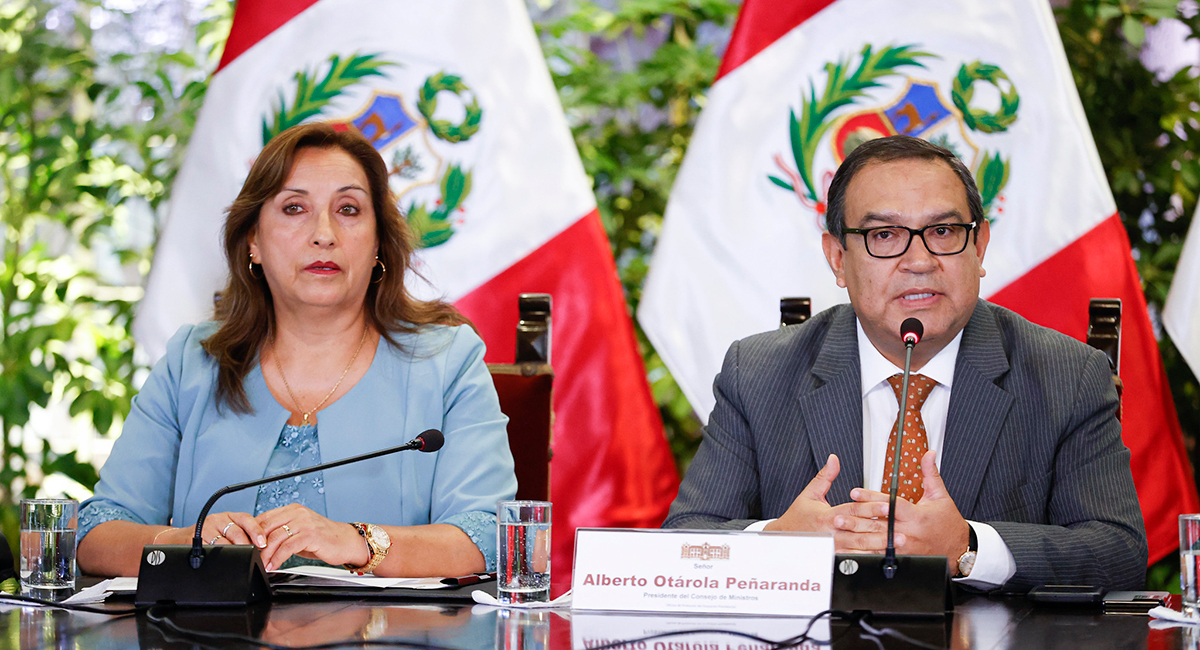After a recent visit to Peru, I’m more convinced than ever that my native homeland, an important Pacific Rim country of 34 million people, has become the extreme Left’s number-one target in Latin America.
The fall of Peru’s Marxist president, Pedro Castillo, in December—after his failed attempt to dissolve the Congress and replace the judiciary in a so-called self-coup—was a blow to illiberal governments throughout the region.
Those governments have been striking back ever since, with Cuba, Venezuela, and Nicaragua—the openly dictatorial bunch—as well as Mexico, Colombia, Argentina, Bolivia, and, to a lesser extent, Chile—countries with elected left-of-center governments—all trying to undermine Castillo’s successor, Dina Boluarte.
Boluarte, the former vice president, succeeded Castillo after his impeachment for violating the Constitution and attempting to establish a dictatorship.
Foreign intervention in Peruvian affairs has been scandalously direct. Mexican President Andrés Manuel López Obrador, for example, has gone so far as to refuse to hand over to Mrs. Boluarte the presidency of the Pacific Alliance, which rotates among member countries. The region’s most meaningful attempt at economic and political integration, the Alliance at one time provided a blueprint for a free and prosperous Latin America with its strong support for liberal democracy, free trade, global economic cooperation, and expansive engagement with the developed world.
Now, of the original founders—Mexico, Peru, Chile, and Colombia—only Peru supports the Alliance’s original goals, while the other three are run in various degrees by populist left-wing governments whose political ideas are far removed from what the Alliance once stood for. By denying Boluarte the Alliance presidency, López Obrador has quashed any hope of getting the organization back on track.
Peru’s internal affairs are equally challenging. Under Castillo, leftists gained administrative control of many government levers (in some cases with the president’s help). Marxist elements sharpened their ability to disrupt the economy, which they denounced as an instrument of imperialist capitalism. This included mining operations (Peru is one of the world’s largest producers of copper, silver, zinc, lead, tin, and gold) and other industries heavily dependent on foreign investment. Oddly enough, this aversion to imperialist capital only applied to Western capital; China’s communist investment and imperialism were welcome.
Castillo’s fall interrupted this process and reduced the influence of both local Marxist groups and foreign governments, which explains López Obrador’s absurd personal attacks on Lisa Kenna, the well-respected U.S. ambassador in Lima.
Although the U.S. government has rightly supported Boluarte as Castillo’s constitutional successor, as have other liberal democracies and the European Union, it would be unfair to attribute the failure (thus far) of radical leftists to bring Peru into their fold primarily to foreign governments.
Rather, it was the refusal of the military, the police, the Peruvian Congress, President Boluarte, and civil society at large to support Castillo’s unlawful power grab, preventing the former president’s attempt to turn Peru into another Marxist dictatorship. The support given by the international community to Boluarte’s government has helped sustain her presidency, but the protests, violence, and dozens of deaths in clashes with security forces continue to haunt it.
Peru’s next presidential election is scheduled for 2026, but Boluarte and others have asked the Congress to move the election up to give the democratic system new oxygen. Thus far, the Congress has sidestepped the request, so Boluarte likely will serve out the term of her former boss.
This may turn out to be a better outcome than previously thought. Boluarte and her prime minister, Alberto Otárola, are trying to calm the country and bring back a measure of stability and normalcy. Her fall amid the present chaos, when it is still unclear which political parties will legally qualify to participate in the next elections, would provide the forces of illiberalism a golden opportunity to try to accomplish an ideological takeover of Peru—with the added danger that this could, in turn, trigger a non-democratic response from the Right.













